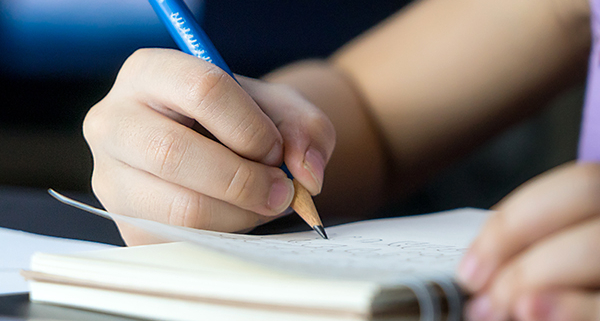Advice to parents: How to help your students to write better
Higher literacy rates are associated with healthier populations, less crime, greater economic growth and higher employment rates. Literacy is a foundational skill required to acquire advanced skills. In honour of World Literacy Day tomorrow, 8 September, we thought it would be helpful if we shared some of our best writing tips to share with your teens.
What is literacy?
Literacy is most commonly defined as the ability to read and write.
But it’s not as simple as it sounds. Reading and writing abilities vary across different cultures and contexts, and these too are constantly shifting.
Nowadays, ‘reading’ encompasses complex visual and digital media as well as printed material. An elderly person who can read the newspaper might struggle to get information from Google.
Similarly, different cultures will have different perceptions of literacy. The writing traditions of the English language make reading comprehension an essential part of literacy, but this might not be as important in cultures or groups that rarely read printed material.
Why is literacy important?
Students need literacy in order to engage with the written word in everyday life.
Think of how often you use your own reading skills in everyday life. It’s not just articles like this one that require literacy, but signs, labels and the messages on your phone, too.
The same goes for writing. Nowadays, even phone calls have given way to instant messaging and text-based communication, making the ability to read and write all the more important.
But beyond the functional level, literacy plays a vital role in transforming students into socially engaged citizens. Being able to read and write means being able to keep up with current events, communicate effectively and understand the issues that are shaping our world.
Here are 10 tips for parents from the National Council of Teachers of English on helping your teen write better:
- As with any skill, writing gets better the more we do it. Let your teenager see you write often and encourage them to write often too. At-home writing might include e-mails, instant messaging, thank-you notes, scrapbook descriptions, diaries and what’s-for-dinner notes.
- We write differently for each audience. Encourage your teenager to expand their range and abilities by writing for many different audiences. They could try a letter to the editor or to a legislator, a silly story for their younger sibling or family member, or a “list of ten ways” to cheer up a sick friend.
- Language play and writing can be fun. Have fun with language yourself and share that sense of play with your teenager. Point out new words and phrases you come across in the newspaper, magazine or on the radio; share favourite song lyrics; get creative in naming a new pet or writing humorous gift tags or cards.
- Support your budding writer. If your teenager chooses to share their writing with you, point out specifically what you like best about the piece. Rejoice in effort, delight in ideas, and resist the temptation to be critical. Maybe you’ll want to ask your teen to read the piece aloud. Feel free to ask questions about parts that aren’t clear, but leave the answering of those questions to your teen. Lastly, make it clear that you are always interested in reading any writings that they want to share with you.
- While it’s true that we learn to write by writing, we also learn to write by reading. Offer your teenager a wide variety of opportunities to read, both educational and entertaining, and pass on your own favourite authors, novels and magazines to show them that you’re a reader too. Talk about the things that you’ve both read.
- The funny thing about writing is that it actually helps the writer think. Encourage your teenager to use writing to think more deeply about things in their life—questions, problems, difficult assignments or tasks, hobbies and topics that they want to learn more about.
- We all have trouble getting started once in a while. If this happens to your teenager, suggest they try brainstorming, jotting down lists of ideas or, talking through their thoughts with you or a friend. Sometimes just spending 15 minutes writing anything and everything (including “I don’t know what to write.”) loosens up the very ideas needed for the piece.
- Good writers know how to make any topic their own. They do that in the way they organise their ideas, in the examples they choose and in the angle, as well as by drawing from their own experiences. Encourage your teen to find ways to make the assigned topic their own.
- Writing is a process of developing and drafting ideas, then revising, and finally, editing for correct grammar and spelling. Help your teenager see the value of clarifying their ideas, drafting and revising before they attend to the mechanics.
- Provide a special writing folder or notebook for your teen and encourage them to save writings in it. Nothing can replace the good feeling of reading something we wrote months ago and rediscovering how good it is.
Join our Reading Room
Subscribe to our mailing list and receive our Reading Room stories three times a week!






